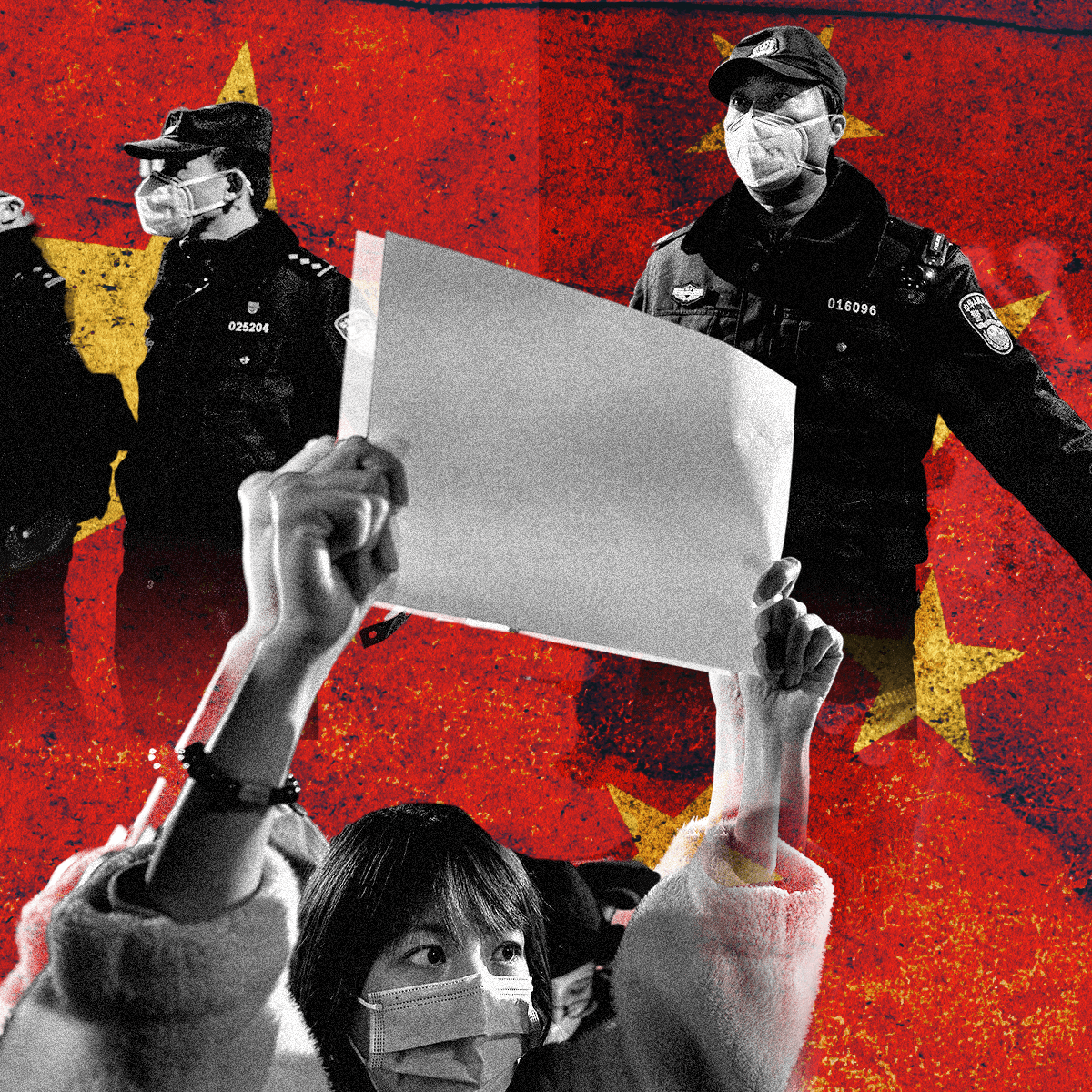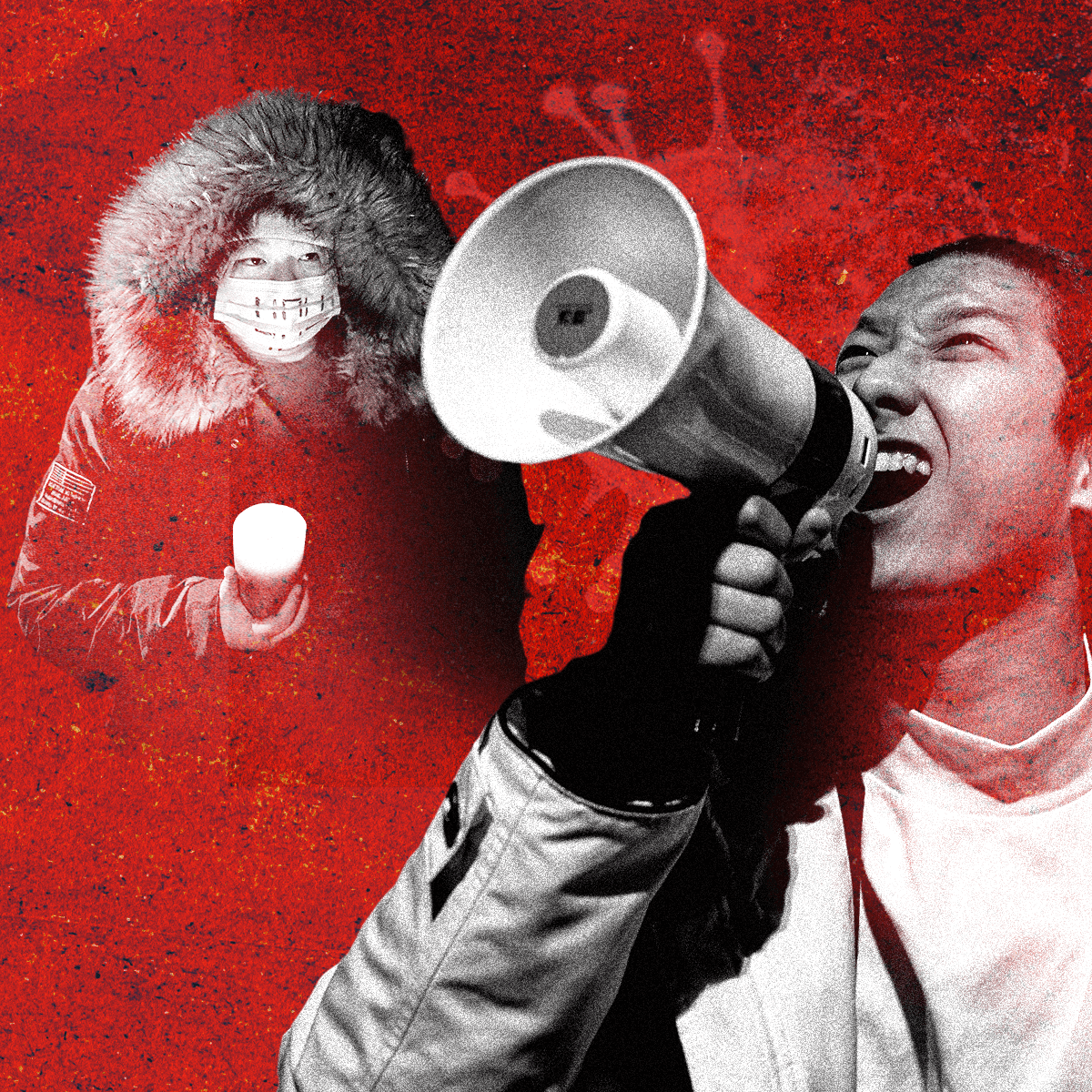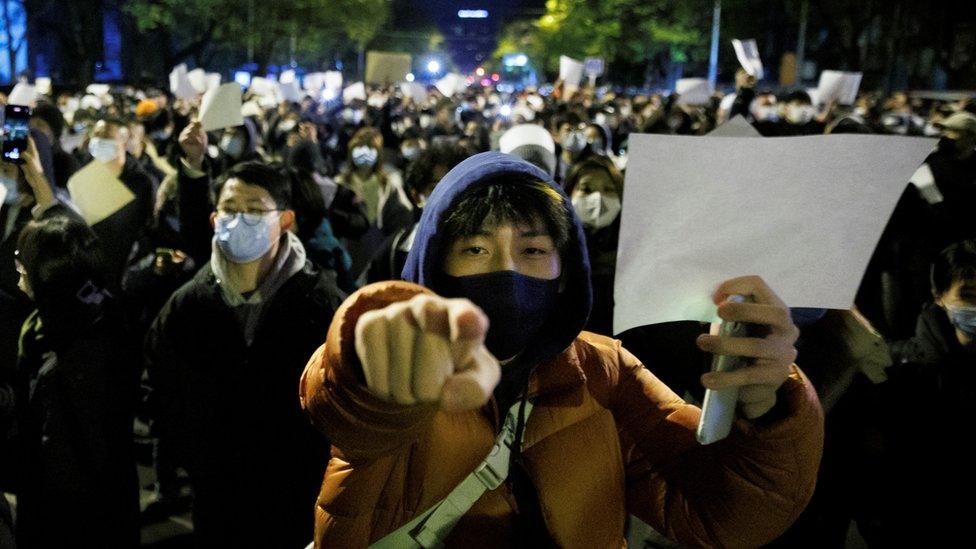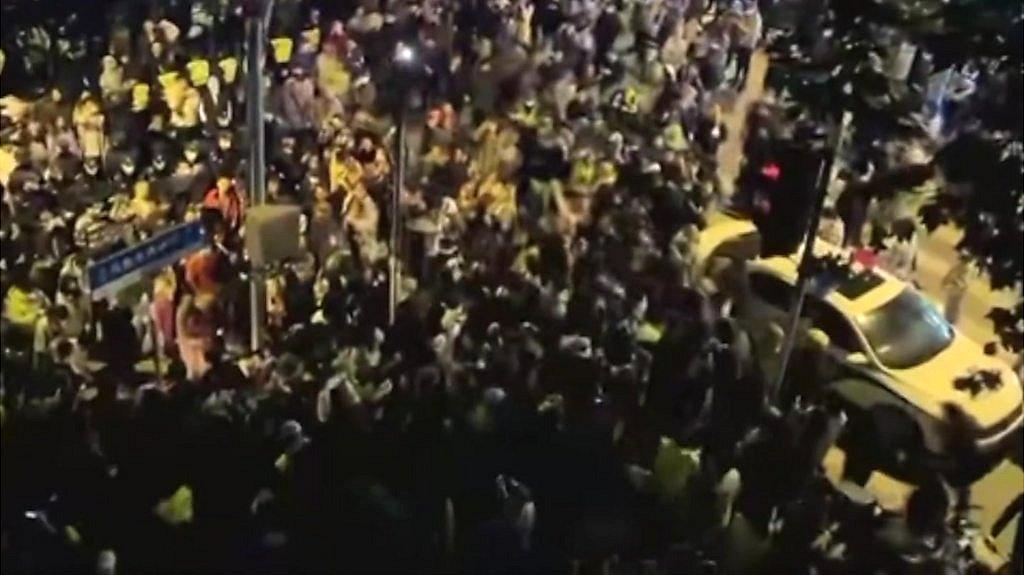A quick guide to China’s Covid rule changes
- Published
China’s changing Covid rules

China stood firm with some of the strictest Covid rules in the world – until huge protests spread across the country. If you've not been following the story, here's what you need to know.
China's been using a “zero-Covid” policy
While the rest of the world has returned to something like normal, in China, just a few detected cases led to buildings or cities being put into strict lockdowns. The aim was to eliminate Covid from the country entirely - and it means that China has some of the lowest Covid death rates in the world.
That means Covid lockdowns never really ended
Shortages of supplies, relying on food deliveries, not being able to go to work - all the difficult parts of the Covid pandemic stayed a part of life in China on-and-off for three years, pushing people to breaking point.
Mass protests happened across the country
In late 2022, large crowds took to the streets in cities including Shanghai and the capital Beijing, demanding changes to the Chinese government's harsh Covid rules.
Protesters blame lockdowns for deaths
A fire in Urumqi, Xinjiang, killed 10 people in a building that had been under lockdown for weeks. Authorities insist residents were not locked in their homes and could get out - but it sparked a fierce reaction.
So China softened its rules
In what’s being seen as a rare concession to protests, officials have started to tone down some of the stricter rules. They started by putting districts rather than whole cities into lockdown, and now are letting some people quarantine at home instead of in state-run quarantine camps.

But the protests were about more than Covid
Some protesters called for more freedom of speech, or even for President Xi Jinping to be removed - an incredible act of defiance in China. Speaking out like this is rare and risky, and led to arrests and harsh crackdowns.
Blank sheets of white A4 paper became a symbol
Protesters held them to symbolise the lack of freedom of speech - speaking out without explicitly saying anything, acting as a stand-in for all the things people cannot say. Some now refer to the protests as the "white paper revolution".
China's most powerful man maintains control
Xi Jinping is one of the most powerful leaders China has had in decades. He has cracked down on dissent, and the two-term limit on presidency has been removed so that he could become president for a third time. Some commentators thought the protests would be a huge test for him – but they have now largely petered out.
But several Covid problems are ahead
The reality is that China still has a relatively low take-up of booster shots, and its China-made vaccines are seen as less effective than Western ones. That means there are big worries about what its first opening-up in years might look like – and if it will lead to a spike in deaths.
Related topics
- Published28 November 2022

- Published27 November 2022
1:19